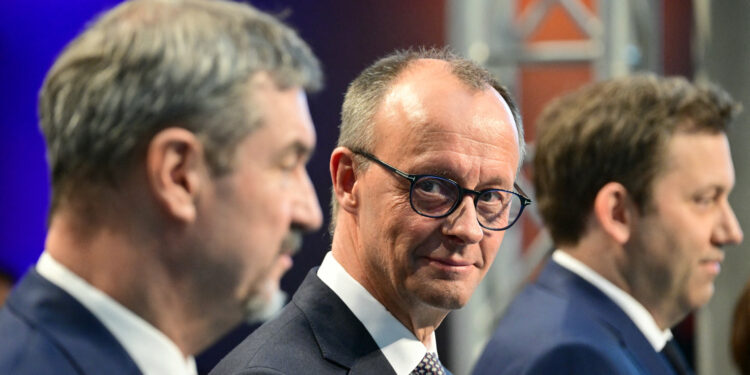Brussels – White smoke in Berlin. After weeks of intense negotiations, the Christian Democrats have come to an agreement with the Socialists to give the country a government. The new “great coalition” now faces many challenges, including lifting Germany out of years of recession and returning it to its traditional role as the locomotive of Europe.
The motto of the new German government will be “reform and invest.” This was stated by the head of the CDU, Friedrich Merz, as he announced this afternoon (April 9) to the press that he had reached an agreement to form the new executive with the leader of the CSU (the Bavarian party that, together with the CDU, forms the Union), Markus Söder, and the leadership of the SPD Social Democrats, Saskia Esken and Lars Klingbeil.
“We have a strong plan in front of us with which we can move our country forward again,” said Merz, who should now have his way to the federal chancellery by replacing Olaf Scholz. The Christian Democrat leader stressed that the agreement—which came following complex talks that lasted for several weeks—sends a clear signal to allies on both sides of the Atlantic about the fact that “Germany is back on track” and that Berlin is ready to lead the EU again (perhaps in tune with Paris) at this convulsive historical juncture.
“This #coalition agreement is a strong and clear signal – to the citizens of our country, but also to our partners in Europe: Germany will have a strong government capable of taking action.” ™https://t.co/lkzYLUegCJ pic.twitter.com/NNmAvllAba
– Friedrich Merz (@_FriedrichMerz) April 9, 2025
Among the political priorities at the top of the GroßeKoalition agenda are a decisive crackdown on irregular immigration, a substantial increase in defence spending (for which the historic debt brake reform has been crucial) and the restoration of the German economy, asphyxiated by more than two years of recession and now seriously threatened by the tariffs imposed by the White House. The program then includes measures to support the electric car industry, bring energy prices under control, cut corporate taxes, and reduce taxes for middle and low incomes.
As for the distribution of the cabinets of the new federal government, the Social Democrats are expected to get seven ministries, including the weighty ones of Defence (which is likely to remain with Boris Pistorius) and Finance (which should instead go to Klingbeil) as well as those related to Labour, Environment, and Justice. An unsurprising success achieved in negotiations, given the debacle suffered in the polls in the early elections last February.
The Union parties will share the remaining nine portfolios, assigning six to the CDU (including Foreign Affairs, which will probably go to Johann Wadephul, and the Economy) and three to Söder’s Bavarian CSU, which will get the Interior (possibly for Alexander Dobrindt). It will now be up to the individual political forces to decide on the names for the various ministries. The new executive is expected to formally take office in May after the SPD’s base has spoken on today’s agreement.
English version by the Translation Service of Withub






